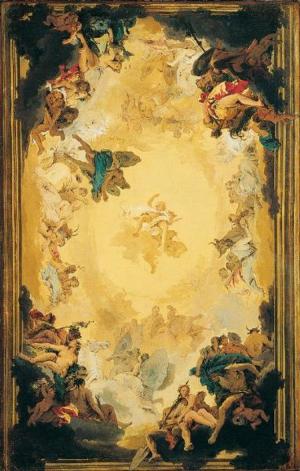Folklore as an Historical Science
Nonfiction, Religion & Spirituality, New Age, History, Fiction & Literature| Author: | George Laurence Gomme | ISBN: | 9781465574404 |
| Publisher: | Library of Alexandria | Publication: | March 8, 2015 |
| Imprint: | Language: | English |
| Author: | George Laurence Gomme |
| ISBN: | 9781465574404 |
| Publisher: | Library of Alexandria |
| Publication: | March 8, 2015 |
| Imprint: | |
| Language: | English |
If I have essayed to do in this book what should have been done by one of the masters of the science of folklore—Mr. Frazer, Mr. Lang, Mr. Hartland, Mr. Clodd, Sir John Rhys, and others—I hope it will not be put down to any feelings of self-sufficiency on my part. I have greatly dared because no one of them has accomplished, and I have so acted because I feel the necessity of some guidance in these matters, and more particularly at the present stage of inquiry into the early history of man. I have thought I could give somewhat of that guidance because of my comprehension of its need, for the comprehension of a need is sometimes half-way towards supplying the need. My profound belief in the value of folklore as perhaps the only means of discovering the earliest stages of the psychological, religious, social, and political history of modern man has also entered into my reason for the attempt. Many years ago I suggested the necessity for guidance, and I sketched out a few of the points involved (Folklore Journal, ii. 285, 347; iii. 1-16) in what was afterwards called by a friendly critic a sort of grammar of folklore. The science of folklore has advanced far since 1885 however, and not only new problems but new ranges of thought have gathered round it. Still, the claims of folklore as a definite section of historical material remain not only unrecognised but unstated, and as long as this is so the lesser writers on folklore will go on working in wrong directions and producing much mischief, and the historian will judge of folklore by the criteria presented by these writers—will judge wrongly and will neglect folklore accordingly. I hope this book may tend to correct this state of things to some extent. It is not easy to write on such a subject in a limited space, and it is difficult to avoid being somewhat severely technical at points. These demerits will, I am sure, be forgiven when considered by the light of the human interest involved.
If I have essayed to do in this book what should have been done by one of the masters of the science of folklore—Mr. Frazer, Mr. Lang, Mr. Hartland, Mr. Clodd, Sir John Rhys, and others—I hope it will not be put down to any feelings of self-sufficiency on my part. I have greatly dared because no one of them has accomplished, and I have so acted because I feel the necessity of some guidance in these matters, and more particularly at the present stage of inquiry into the early history of man. I have thought I could give somewhat of that guidance because of my comprehension of its need, for the comprehension of a need is sometimes half-way towards supplying the need. My profound belief in the value of folklore as perhaps the only means of discovering the earliest stages of the psychological, religious, social, and political history of modern man has also entered into my reason for the attempt. Many years ago I suggested the necessity for guidance, and I sketched out a few of the points involved (Folklore Journal, ii. 285, 347; iii. 1-16) in what was afterwards called by a friendly critic a sort of grammar of folklore. The science of folklore has advanced far since 1885 however, and not only new problems but new ranges of thought have gathered round it. Still, the claims of folklore as a definite section of historical material remain not only unrecognised but unstated, and as long as this is so the lesser writers on folklore will go on working in wrong directions and producing much mischief, and the historian will judge of folklore by the criteria presented by these writers—will judge wrongly and will neglect folklore accordingly. I hope this book may tend to correct this state of things to some extent. It is not easy to write on such a subject in a limited space, and it is difficult to avoid being somewhat severely technical at points. These demerits will, I am sure, be forgiven when considered by the light of the human interest involved.















